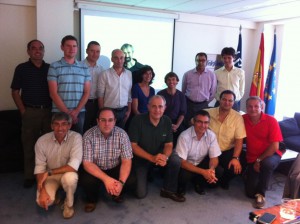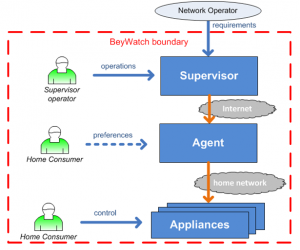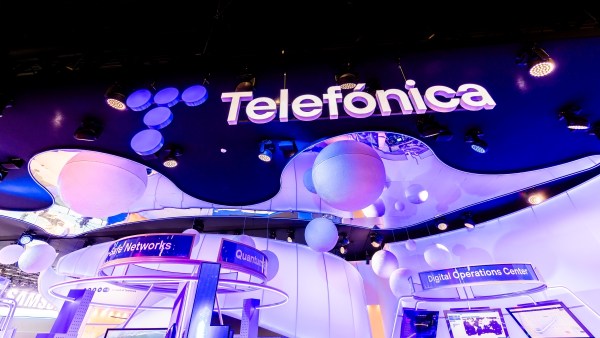Telefónica Public Policy & Telefónica España Regulatory teams
Some of the most important challenges that we are facing, such as climate change, the increasing dependence on imports, the pressure on energy resources and the need to provide all consumers with safe energy at affordable prices, create a situation in which the EU has implemented an energy policy that will transform the EU into an economy with a low consumption of energy that is safer, more competitive and more sustainable.
Of particular importance in this regard is the building sector, which accounts for 40% of total energy consumption in the EU. So reducing energy consumption in this area is a priority within the framework of the“20-20-20” objectives involving energy efficiency (see Directive 2010/31/EC).
Meanwhile, ICTs are a key sector for reducing energy consumption in buildings. An example of this is BeyWatch (Building an Energy Watcher), a European research project led by Telefónica I+D, whose objective is to develop and demonstrate new technological solution that pave the way towards a sustainable energy system.
A few weeks ago, we successfully accomplished the final revision of BeyWatch, in which the Project Officer and reviewers gave the highest scores to the consortium of companies with which we worked closely together for 30 months to bring about the initiative: EDF, Synelixis, the University of Palermo, Fagor, Gorenje, GL, Sigma-Orionis and Telefónica I+D. What were the results? Up to 56% savings in the cost of running a washing machine and about 25% in the total amount of the electricity bill based on EDF (Electricité de France) current rates.
BeyWatch is paving the way for Smart Energy, the new paradigm of the electric system that integrates renewable energy sources, distributed and intermittent energy generation and new consumer models (mobile charges such as electric vehicles and consumers who also produce energy). And you need tools for intelligent management of energy distribution networks hence Smart Grid, which also integrate the consumer into the mechanisms of the system, through Active Management of Demand.
How has BeyWatch materialized?
A Supervisor has been developed, which is the tool that allows the operator of the electricity marketing entity to shape the aggregate demand curve by customers in a specific geographic area. The supervisor allows the deployment of new dynamic pricing schemes that reflect the real cost of the energy that we consume. This way, we succeed in moving demand towards those times of the day when generating costs are lower: whenever the energy produced is clean, it eliminates the consumption peaks by flattening the demand curve. And it is not necessary to draw from the older generating plants or invest in the construction of new plants.
The Supervisor is only effective if combined with an intelligent Agent that waits for his signals on the side of demand. In the case of BeyWatch, this is in residential buildings.
Supervisor signals are modelled on the parameters of the contract that the consumer signs with his marketing company in the form of incentives and counter incentives (maximum power curve throughout the day, rate schedule, etc).
The Agent combines the requirements of the Supervisor with the information about provision of renewable energy generation in the home (thermal solar and photovoltaic panels have been added to generate hot water and electricity), the unmanaged load profile and user preferences regarding the operation of ‘flexible’ electric loads (the washing machine, the dishwasher and the refrigerator, ICT-enabled, with capabilities for monitoring and control). The Agent then optimizes consumption which results in the intelligent programming of household appliances.
The technology developed for the optimization of consumption in residential buildings is being patented. The framework for monitoring and control of electrical appliances has been developed entirely by Telefónica I + D.
BeyWatch is a project for energy efficiency through the use of ICTs for the end consumer and, in particular, for residential buildings. Nevertheless, Telefónica also offers other energy efficiency services called “Green ICT Services” which show how the ICT sector is providing practical solutions to the energy problem and climate change, thus contributing to a more sustainable world.
This project, led by Telefónica I + D, is part of Telefonica’s global strategy for energy efficiency, climate change and green ICTs.
Mª Ángeles Barba Rodríguez, Technology Expert of Telefónica I+D M2M area.


















